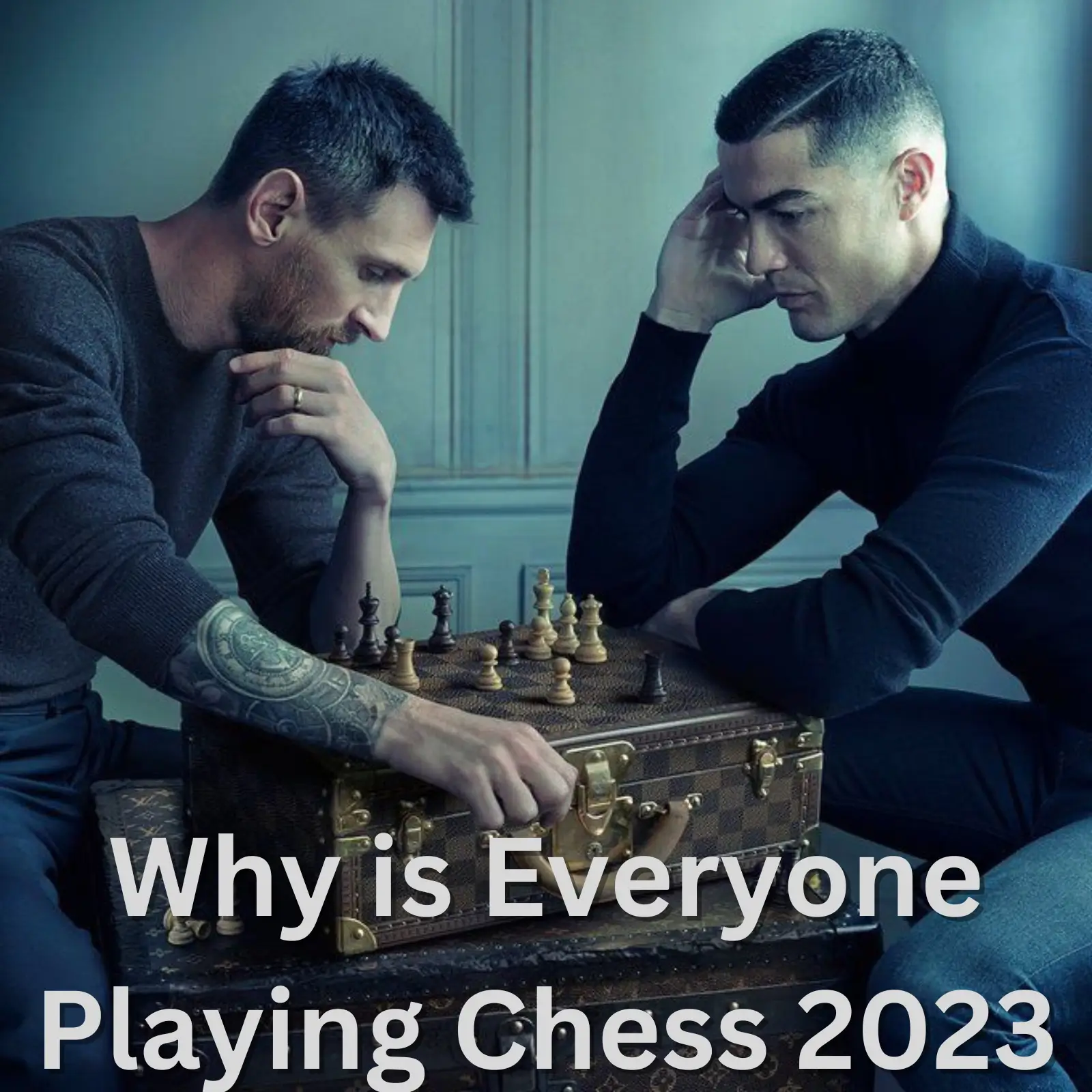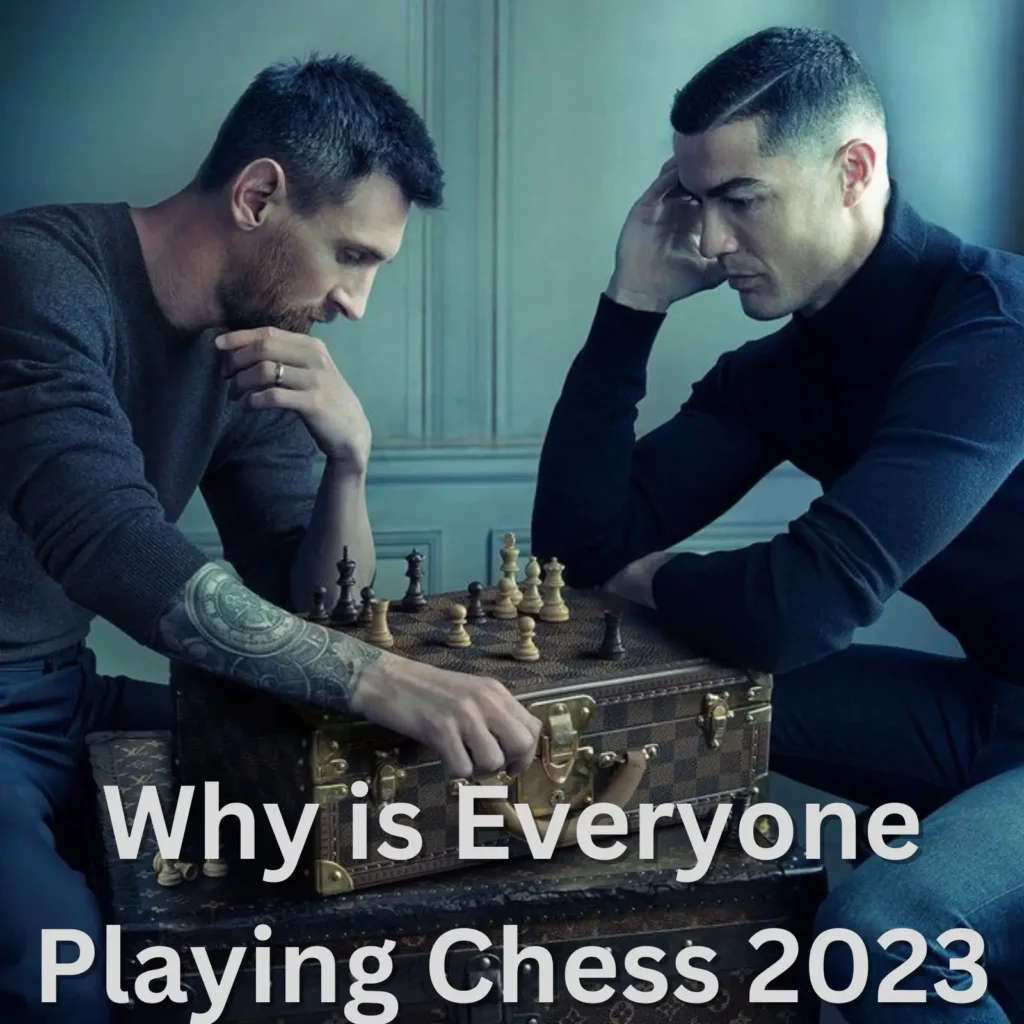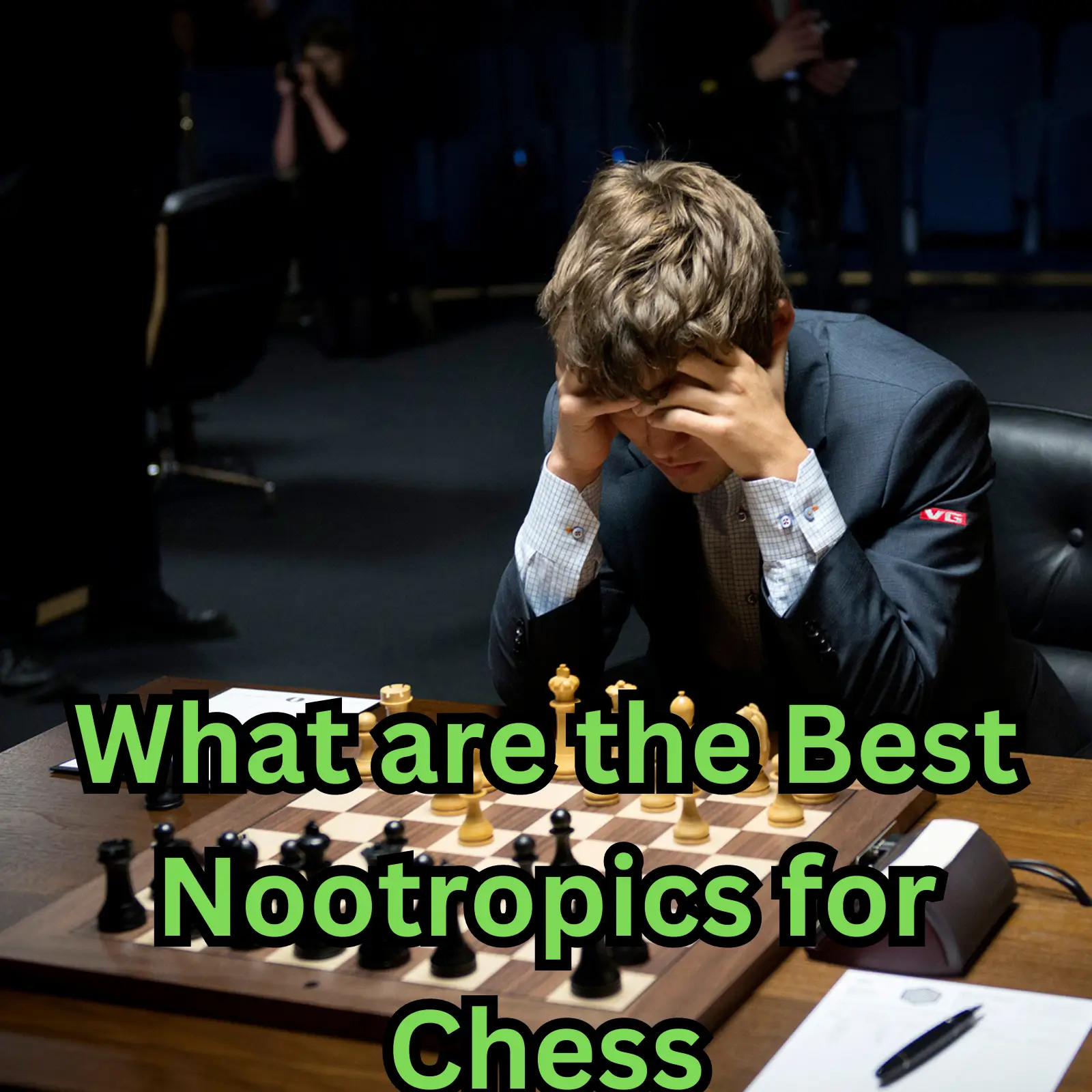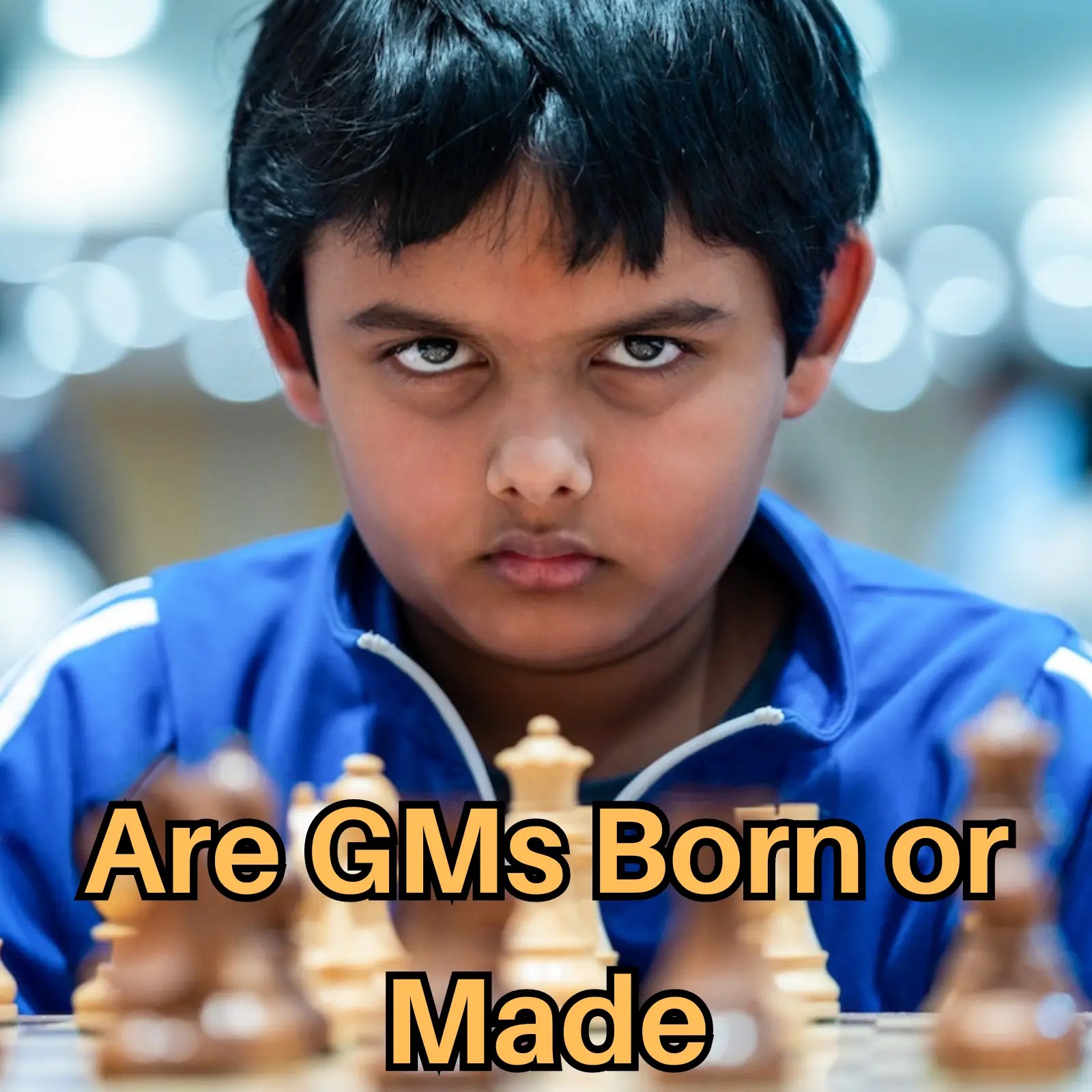
Why Is Everyone Playing Chess 2023

Why Is Everyone Playing Chess 2023
Introduction
Chess has always been a popular game but now in 2023 it has reached new highs, why is that? It’s not only online, public parks are full of people playing chess, students are more likely to be playing chess in their free time in class nowadays. But what has changed recently in chess? Are there some new players that are very popular, are the new generations (Gen Z and Alpha) in love with chess?
Back when I was young chess was a highly respected but not that popular game, most people associated the game with being smart and calculating. But now there is an entire global community based around chess and it seems people from all ages, backgrounds and playing ability are welcome.
Let’s start by talking a bit about the history of chess and how it became popular in the first place, then we can really get into the why now aspect of it.
Brief History of Chess
If you were wondering about when chess first became what it his today then we have to say that it was in the beginning of the 19th century. Before that many chess rules like which color went first or stalemate rules weren’t even a thing until the 19th century. This means that modern chess as we know it was mostly a finalized product by 1820.
Chess problems first started appearing in newspapers in 1824 so that tells us a lot about chess popularity. It was clear that this new game was beginning to take the world by storm.
The first organized chess tournament was held in 1851 in England, it was organized by Howard Staunton and the winner was German player Adolf Anderssen.
This is when the first great player Paul Morphy an American chess prodigy first became a sensation in chess, as he traveled to Europe for the first time and defeated all of the strongest players in the world easily, then quickly retired.
In many ways Morphy was the first Genius of chess before the game was seen as something closer to a sport, back then chess was seen as a game of luck and was compared to card games and gambling.
In the next hundred years chess quickly evolved from a niche game played by a small amount of people to a global sport with world championships held annually all over the world. This is when Emmanuel Lasker became the best player in the world holding the title of world champion for a record 27 years straight.
After the end of World War II chess enjoyed a period of great popularity. Bobby Fischer is credited with introducing millions of people into chess thanks to his ability to compete with a seemingly unstoppable Soviet Union. Many people from this period said that if it wasn’t for Fischer, they wouldn’t have tried to play chess.
The Netflix Effect: The Queen’s Gambit

In late 2020 Netflix released a new series called “The Queen’s Gambit”; this series took the world by surprise becoming one of the most watched new series all over the world. In this series a young orphan Beth Harmon discovers that she has amazing talent for chess and embarks on a journey to become the world’s best player.
The series, based on the 1983 novel of the same name by Walter Tevis, was a massive hit, garnering critical acclaim and millions of viewers worldwide. It not only sparked a renewed interest in the game but also encouraged many people, particularly women and girls, to take up chess. Sales of chess sets skyrocketed, and online platforms saw an unprecedented increase in users. The “Queen’s Gambit effect” continues to be felt, with more people joining chess clubs and participating in tournaments than ever before.
The Pandemic: A New Hobby
Right when The Queen’s Gambit was released was almost exactly when the pandemic hit the entire world, it changed entire lives in a matter of months. No longer were public gatherings like concerts, parties or just visiting the mall allowed, people were forced to quarantine in their own homes for months.
This new environment meant that things that could be done in your room were suddenly vital, movies, gaming, books and all things you could do from the comfort of your own home became twice as popular in this period and chess benefited greatly from this.
A lot of people who previously never even tried playing chess suddenly didn’t have much else to do, so they tried it and became new chess players. A lot of current players credit the pandemic with introducing them to chess.
The Social Aspect: Chess as a Unifying Force
In today’s increasingly polarized world, chess has emerged as a unifying force that transcends language, culture, and nationality. The game’s universal appeal and common set of rules create a level playing field where players from all parts of life can connect and compete.
Chess promotes critical thinking, problem-solving, and patience, which are valuable skills that can be applied to various aspects of life. The game’s intellectual challenge, combined with its social aspect, has made it a popular pastime for people seeking personal growth and meaningful connections.
A similar appeal to that of Soccer is seen in chess, you don’t even need to be able to speak with someone to be able to play chess properly, as long as you know the rules you can spend an entire afternoon playing with someone you can’t even converse with, it’s an amazing thing.
The Rise of Chess Streaming and Content Creation
Chess has always had a strong community of enthusiasts, but the rise of streaming platforms like Twitch and YouTube has made it more accessible and engaging than ever before. Grandmasters and popular personalities now regularly stream their gameplay, teach lessons, and share their insights with thousands of viewers.
Some of the most popular chess streamers, like Grandmaster Hikaru Nakamura and International Master Levy Rozman (GothamChess), have amassed large followings and inspired many to take up the game. Their entertaining and educational content has helped demystify chess and showcase its appeal to a wider audience.
In the past chess was seen as a boring game played by nerds, but thanks to YouTube people know how entertaining and fun chess personalities can be. One example is female streamers Alexandra and Andrea Botez showing that young women can also be skilled at chess too.
The Digital Revolution: Online Chess Platforms

Back in the day you needed a board and another person to enjoy chess, but now things have changed. With the internet new ways to play have been introduced to the world. Online chess platforms like Chess.com and Lichess have made it possible for anyone to start competing with people from all over the world for free!
In the past people played long distance chess over years, making moves sending letters and updating the board in their homes, now all you need is a phone, a tablet or a personal computer and you are all set to play with even the best players in the world.
Not only that, these platforms also have excellent training tools, that can make the process of learning how to play way easier than it was before. This means that chess is now more accessible than ever before in its history.
The Impact of AI and Machine Learning
The advent of powerful artificial intelligence (AI) and machine learning algorithms has also played a significant role in the resurgence of chess. In 2017, Google’s DeepMind introduced AlphaZero, an AI program that taught itself to play chess at a superhuman level within just a few hours. This groundbreaking achievement not only demonstrated the power of AI but also provided new insights into the game.
Since then, chess engines like Stockfish and Leela Chess Zero (LCZero) have continued to evolve, offering invaluable tools for players to analyze their games and improve their skills. The incorporation of AI into training and coaching has revolutionized how players approach the game, leading to a deeper understanding of chess strategy and tactics.
Conclusion
The increased popularity of chess is evident to anyone that is paying attention, google trends shows almost twice as many searches for chess related terms now in 2023 than just last year, it doesn’t seem to be going away any time soon.
All of the reasons that we mentioned in this article are important in the rise of chess in 2023, but we can’t really pin point a single one as the defining factor, it’s a good mix of many of them.
But If I had to narrow it down it would be down to the pandemic, it forced people to change their lifestyle, change their careers and the isolation and boredom that many felt meant that chess became a popular past time.
Related
References
You may also like

What are the Best Nootropics for Chess

What Opening Do Most Grandmasters Play

Are Grandmasters Born or Made
Archives
- February 2026
- January 2026
- December 2025
- November 2025
- October 2025
- September 2025
- August 2025
- July 2025
- June 2025
- May 2025
- April 2025
- March 2025
- February 2025
- January 2024
- October 2023
- September 2023
- August 2023
- July 2023
- June 2023
- May 2023
- April 2023
- March 2023
- February 2023
- January 2023
- December 2022
- November 2022
- October 2022
- September 2022
- August 2022
- June 2022
- May 2022
- April 2022
- March 2022
- January 2022
- December 2021
- November 2021
- October 2021
- August 2021
- November 2020
- July 2020
- May 2020
- April 2020
- March 2020
- August 2018
- July 2018
- June 2018
- April 2018
- March 2018
Categories
- Aftercare Procedures
- Age Groups
- AI/ML
- Alternative Medicine
- Ambient Computing
- Animal Health
- Animal Husbandry
- Animals
- Anti-Aging
- Architectural Design
- Art And Technology
- Auditory Science
- Augmented Reality
- Automation
- Babies
- Baby
- Beauty & Skincare
- Beauty Industry
- Biohacking
- Biomechanics
- Book Reviews
- Breastfeeding
- Budgeting
- Budgeting Strategies
- Business
- Cardiovascular Health
- Career Advice
- Career Development
- Career Growth
- Cats
- Chess
- Chronobeauty
- Circular Economy
- Civic Technology
- Cleaning Tips
- Cloud Computing
- Cognitive Health
- Cognitive Performance
- Cognitive Science
- Community
- Community Building
- Community Engagement
- Community Living
- Computer Vision
- Consumer Guides
- Consumer Trends
- Container Gardening
- Content Analysis
- Content Non-Technical
- Content Strategy
- Cooking Techniques
- Cosmetic Chemistry
- Cultural Events
- Cycling
- Data Analysis
- Data Engineering
- Data Science
- Database
- Design Psychology
- Design Trends
- Developer Productivity
- Diet
- Diet
- Diet And Nutrition
- Digital Identity
- Digital Media
- Digital Wellbeing
- DIY
- DIY Projects
- Dogs
- Engineering Culture
- Entertainment News
- Environmental Impact
- Environmental Science
- Equity Compensation
- Ethical AI
- Exercise
- Exercise Science
- Exercise Technique
- Exotic Pets
- Fall Gardening
- Family
- Family Health
- Family Life
- Fashion Business
- Fashion Industry
- Fashion News
- Fashion Tech
- Financial Analysis
- Financial Optimization
- Financial Planning
- Flooring Maintenance
- Food
- Food Psychology
- Food Safety
- Food Science
- Food Tech
- Functional Fitness
- Functional Training
- Future Of Work
- Garden Care
- Garden Maintenance
- Gardening Tips
- Geospatial Data
- Gig Economy
- Greece
- Greek
- Greek Food
- Green Technology
- Gymnastics
- Hardware Engineering
- Health
- Health And Wellness
- Health Informatics
- Health Science
- Health Tech
- Health Technology
- Healthcare
- Healthcare Management
- Healthy Eating
- Healthy Recipes
- Holistic Health
- Holistic Wellness
- Home & Living
- Home Decor
- Home Financing
- Home Health
- Home Improvement
- Home Maintenance
- Home Organization
- Home Styling
- Horticulture
- Household Chemistry
- Identity Management
- Indoor Gardening
- Industrial Design
- Industry Analysis
- Infant Nutrition
- Infrastructure Management
- Ingredient Deep Dive
- Integrative Health
- Integrative Medicine
- Interior Design
- Internet of Things
- Internet of Things (IoT)
- Invalid Request
- Investment Strategies
- Investment Strategy
- IoT
- Kids
- Leadership Development
- Learning Strategies
- Lifestyle
- Lifestyle Brands
- Lifestyle News
- Lifestyle Optimization
- Literary Criticism
- Literature
- Logistics Management
- Material Science
- Materials Science
- Meal Planning
- Media Analysis
- Meditation
- Mental Health
- Mental Performance
- Mental Wellness
- Miami
- Miami Food
- Mind And Body
- Minimalism
- Mobile Development
- Neuroscience
- No Applicable Categories
- Nursing
- Nutrition
- Nutrition News
- Open Source
- Operating Systems
- Operational Resilience
- Opinion
- Organization Tips
- Outdoor Living
- Over 40
- Over 50
- Over 60
- Parenting
- Parenting
- Parenting Strategies
- Performance
- Performance Optimization
- Personal Development
- Personal Finance
- Personal Growth
- Personal Productivity
- Pet Care
- Pet Safety
- Philosophy
- Plant Care
- Politics
- Product Formulation
- Productivity
- Productivity Engineering
- Protein
- Psychology
- Psychology of Space
- Quantified Self
- Reading Culture
- Real Estate Investment
- Recipes
- Regulatory Compliance
- Remote Work
- Renovation Planning
- Resource Management
- Respiratory Health
- Responsible Pet Ownership
- Retail Strategy
- Retail Technology
- Robotics
- Science
- Seafood
- Seasonal Gardening
- Security
- Sedentary Health
- Self-Care
- Skincare Science
- Skincare Trends
- Sleep
- Sleep Health
- Smart Home
- Smoothies
- Social Impact
- Soft Skills
- Soil Health
- Spatial Computing
- Spatial Design
- Stress Management
- Supplements
- Sustainability
- Sustainability Science
- Sustainable Engineering
- Sustainable Fashion
- Systems Engineering
- Tax Optimization
- Tax Strategy
- Tech Investment
- Technical Writing
- Testing
- Travel
- Travel News
- Travel Safety
- Travel Tips
- Trend Analysis
- Tropical Plants
- Uncategorized
- Urban Gardening
- Urban Planning
- User Experience
- Veggie
- Vietnam
- Virtual Events
- Volunteering
- Wealth Management
- Wearable Technology
- Wellness
- Wellness Technology
- Winter Gardening
- Work-Life Balance
- Workplace Culture
- Workspace Setup
- World
- Writing
- Writing Skills
- Year In Review
- Yoga
- Yoga News
- Zero Waste

Leave a Reply